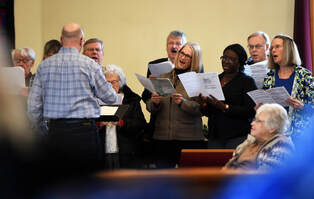 Earlier this week the focus of Christian Twitter's outrage shifted away from Beth Moore (at least for a few days) to a small church outside the Twin Cities. The St. Paul Pioneer Press ran an article with the headline "Cottage Grove church to usher out gray-haired members in effort to attract more young parishioners." In case you missed all the hoopla, in essence a declining church announced it would shut down and re-launch with an emphasis on new music and a younger pastor. Many who were at the meeting when it was announced felt it was an attempt to push out the older members, and they pointed to a memo as part of the relaunch plan. Sarah Bailey with the Washington Post offers some additional help in seeing the intent of both the main campus and the regional conference to try to establish a vibrant and thriving church in the area. Whatever is going on in Cottage Grove, there are two realities that we have to acknowledge: 1. Failing to change is a path to death for any church 2. Every church has a life cycle, and none are guaranteed forever The situation at Cottage Grove is one not unfamiliar to many churches around the country, regardless of denomination. It's easy to pick on the UMC as a test case of the decline of mainline denominations, but even in our very conservative SBC tribe, churches are facing the same issues Cottage Grove is. The finances are a wreck, attendance is dwindling, and they sit in a facility they can no longer use, afford to maintain, or downsize. 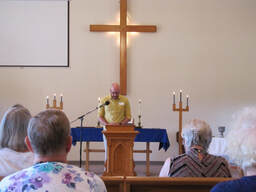 One of the things the article exposed in the big picture is the perception that churches practice, directly or indirectly, an exclusion of older members in the name of change. The stereotype is that older attenders are in the way of change, and rather than work with them the answer is to work around them. Can I say there's a theological term for that? Idiotic. It's idiotic because the church is a Body. Paul's language of the church in 1 Corinthians is that it's a Body with many parts. Not everyone is an eye, nor is everyone a foot. Implied in that is that we aren't all alike in the church. We're made of a wonderful cross-section or tapestry of the community around us. Normally our communities aren't monolithic. They're made of old and young, middle class and struggling, white and minority, blue collar and professional. In some cases and in some communities, the makeup of the church will be more homogenous, but it ought not be exclusively homogenous. Churches on a college campus will likely be mostly 20 somethings, but that church also needs gray hair. Churches in retirement areas will likely be mostly over 70, but that church needs young families as well. It's idiotic because the church is a Family. Our family gatherings are the bringing together of 3-4 generations. Our parents can still remember separate water fountains, the moon landing, and the fascination with the microwave. Their parents can remember ration stamps and the Depression. Our kids have never known a time without Netflix. And then there's us Xennials who grew up with payphones and now have everything about our lives in our pocket. Families are like that. Families are spread out. And they come together under one common thing, the table. The church does the same, but the table is the Lord's Supper. When we take the Lord's Supper we're participating in a family gathering, where everyone comes together. It's a beautiful picture. It's idiotic because the church is an Outpost. We're citizens of another Kingdom, strangers and aliens in this one. It's not our home, we're residents of this world but our passports are from heaven. So the church is the outpost, or embassy, of our home Kingdom. When we exclude or push away people who don't "fit" what we're aiming for, we're telling them they're not welcome on their home soil. None of us would want to be turned away at the US Embassy if we were visiting another country. It's the same with the church. We are the outpost of safe refuge, where we can gather with one another for encouragement, fellowship, fuel, and to be sent back out on mission. At times we are wise and effective to target specific points of outreach or programmatic ministry. I love that churches have senior adult ministries and ways to reach out to those who are in that group. I love churches with student ministries to reach into communities and places that senior adults can't be (Ms. Ethel can't be in your algebra class). I even love churches that have a special night dedicated to engage college students and young adults. But those aren't in place of the gathered church in worship. Our aim as pastors must be to lead our churches forward, together. How have you seen your church move forward together? *Hat tip to 9Marks and Jonathan Leeman's book Church Membership for the Body, Family, Embassy imagery
0 Comments
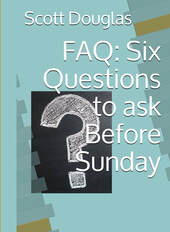 For pastors, it doesn't take long to realize our time is going to be spent on a lot of things. We'll be in meetings, we'll be in meetings to talk about future meetings, we'll visit people in their homes or in the hospital, we'll spend time in counseling and soul care, we'll disciple people, lead staff, unclog a toilet or two, and have more meetings. But the highest task of a pastor is preaching. Preaching is both our most visible and our most central in the life of the church. Preaching is more than biblical instruction for knowledge, it's training for living, an encouragement to the downcast, a way of helping people develop a biblical worldview, and a painting of God's immeasurable glory. Every week, we're expected to stand up, open a Bible, and have something to say. Nothing will discredit a pastor except moral failure like one who has nothing to say on a Sunday. It comes around every 7 days. Unless your worship services change the schedule, it will be at the same time. It's inevitable, even on Daylight Savings, Sunday is coming. It's like a clock in our head that starts the moment the last person (usually the pastor) pulls out of the parking lot. That's why I wrote FAQ: Six Questions to Ask Before Sunday. It's a primer for pastors, a guide for helping us to think about how to move from Sunday to Sunday with a message to share with God's people. One of the best things for me in writing was getting to share it with and get a foreword from, as I've known him since high school, Brother Tim. Dr. Beougher was the first example of a preacher in my life, and his impact is still something I am grateful for. Those six questions are: 1. How do I pick a text? 2. What does the text mean? 3. How is the text changing me? 4. Who is my audience? 5. Where is the Gospel? 6. Why does it matter? It's available as a paperback and on Kindle. Hopefully this short work helps us to preach more faithfully for God's glory in the church!  As kids we all learned the nursery rhyme about the church, the steeple, and the people. It's a way for us to see the church as a structure with a familiar style (open doors, a building, the image of a steeple, and a classic architecture). Even if a church meets in a warehouse, movie theater, a back porch, or in a sprawling suburban campus, there's still imprinted in our minds a form of the church and its familiar shape. So it's with keeping that familiar imagery in mind I want to think about what it means for the church to live out the two greatest commandments, to love God and to love neighbor. That, in essence, is the summary of the Law according to Jesus. And because we are still under an obligation of obedience even in Christ, we recognize that our duty, our response, our worship of Jesus is expressed through faithfully living out what He has called us to. Love God. Love Neighbor. Yesterday was the first in a series through the Seven Churches of Revelation and what we can take from them. The first was Ephesus, the church that had a loveless orthodoxy. They had all the right answers, held to all the correct doctrine, and did all the right things, but the charge against them from Jesus was that they had forgotten/abandoned the love they had at first (or their first love - it's a bit of a sticky interpretive issue). As I chewed on that, I kept coming back around to some undeniable assumptions about the local church: 1) There is a foundation of Truth - We don't get to redefine things, God has spoken and has declared what is good and right and true. This canon has been meticulously and faithfully preserved in the Scripture. We know about God, ourselves, and how we are to live and relate to Him. 2) Truth overflows into a twofold expression of Love and Action - The truth of Scripture about God is that He is not distant, removed, or callous. He is near, loving, and merciful. He is generous. He is good. And because of His initiative and affections and actions towards us, we love Him. And not only do we love Him but we also serve Him. A deficient view of Truth can lead people away from Love and Action because a deficient view of Truth fails to see God as He truly is. 3) The church is, has been, and will continue to be God's Plan A - The vehicle of redemption and transformation of not just individuals but culture and the world will always be the local church. God loves the Church. Jesus calls it His Bride. And each and every local church is an outpost and embassy of God's Kingdom to reach its community and the world. The vehicle is not a denomination, missions agency, or community ministry. Which brings us to the model below.
At the top of the building is the steeple, where everything comes together. In this, the steeple is the vertical and horizontal axes of love that God commands of us: love for God and love for Neighbor. Our vertical relationship with God is to love Him with all our heart, soul, mind, and strength. It's more than feelings. It captures our thoughts, it drives our actions, it stirs our souls. It changes us. All of us. From within and outside. Likewise, not as a secondary but more as a 1A, is the other of the Greatest Commandments: love your neighbor as yourself. A church founded on Truth, supported by Love and Service as the outflow of Truth, will live out not only the vertical of our relationship with God but also the horizontal in how we love our Neighbor.
The church at Ephesus was one that was marked by a commitment to Truth but without the same commitment to Love. Jesus' warning to them was to repent and return, to recapture that love, or else their lamp stand would be removed. Removing the lamp stand would mean taking the source of their light away, Jesus Himself. It would become a "church" where Jesus wasn't. Those same words apply to us at Emmanuel or wherever you're reading this. If we aren't committed to the expression of Truth through Love and Service, thereby fulfilling the two Greatest Commandments, we shouldn't be surprised when Jesus moves out. 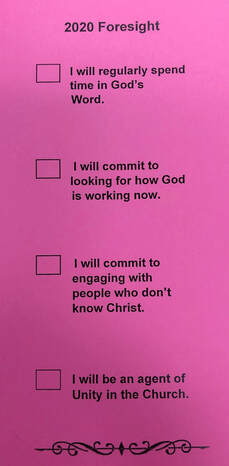 It was nice to be back home after traveling for almost 2 weeks for the annual "Christmas in Kentucky" tour. The kids got spoiled from Santa and the grandparents (we counted 4 Christmases total) and we got to spend time with our families, including my new niece! Yesterday we spent time in Philippians 3 and I couldn't escape the phrase from Paul "forgetting what lies behind and straining forward to what lies ahead." Out of that came four particular ways for us as a church to strain forward. 1. A commitment to regular time in the Word - A few years ago a massive study group was formed to understand the back door in the SBC, where we would see thousands baptized but our numbers shrink. The realization was that it wasn't an evangelism issue a discipleship. Out of that group came the observation that regular Bible engagement was the top way to grow. Our regular time in the Word is nourishment to our soul, and we would be hard pressed to grow spiritually apart from a steady diet of what God has said to us. For Emmanuel, my prayer is that we would be a church who feasts on the Word, and doesn't settle for getting one meal a week. How you define regular is up for grabs. It can be daily or 3-5 times a week, and it can be a short or long reading. The point is to be regularly in the Word. 2. A commitment to finding where God is working now - In 1985 Bruce Springsteen had a hit with the song Glory Days, where he sings about people whose best days were long behind them and they still lived in that moment. Churches fall victim to that when they fail to see where God is at work now. They do things the way they always had, and get frustrated that the results aren't the same. Our message doesn't change, but the means do. And it's up to us to find out where God is working and join him there (thanks Blackaby for that one in Experiencing God). History is invaluable as a testimony of past faithfulness, but idolizing the past can lead to both resentment and a distraction from mission. My prayer for Emmanuel is that we'd see where God is working around us, we'd see the neighbors He has given, and we'd love our community.  3. A commitment to engaging people who don't know Christ - One of the snares that churches and Christians can fall into is what Emma Green in the Atlantic calls "cultural secession." In essence, rather than engage the culture, the Church and Christians withdraws from culture and creates its own, self-sustaining community. In the Atlantic article, it talks about the pros and cons of a very conservative sect of Catholicism and its impact on the surrounding community (including the "townies" who aren't part of the SSPX majority). When Churches and Christians engage in cultural secession, we're withdrawing from the very people we have been placed alongside for. We have been given our neighbors, coworkers, friends, gym members, and the guy who walks his dog every morning by your house for a reason: to be salt and light. As the Church moves into a cultural minority, it's imperative for us to be intentional about our witness and mission. For Emmanuel, my prayer is that we'd each find our "One" to pray for and share Jesus with. 4. A commitment to be an agent of unity in the Church - In this passage, I saw an implicit connection between maturity and unity. Maturity lends itself towards living out Colossians 3:13 to bear and forgive. In any church, uniformity is dangerous. We're made to be different. We're uniquely gifted, called, experienced, and come from a variety of backgrounds. Unlike any other institution, the Church brings together people from all walks of life for an eternal purpose. A baseball game will bring together thousands of diverse people together, but their purpose is to cheer on the home team. For the church, our diversity is a way of engaging the nations and our neighbors. That's why unity is so important. Unity keeps a church going in the same direction, focused on mission, clear on vision, and freed from divisions or cliques or drama. My prayer is that Emmanuel would be a church that continues to stay together as we reach out. |
Scott M. DouglasA blog about leadership and the lasting legacy of family ministry. Archives
August 2023
Categories
All
|
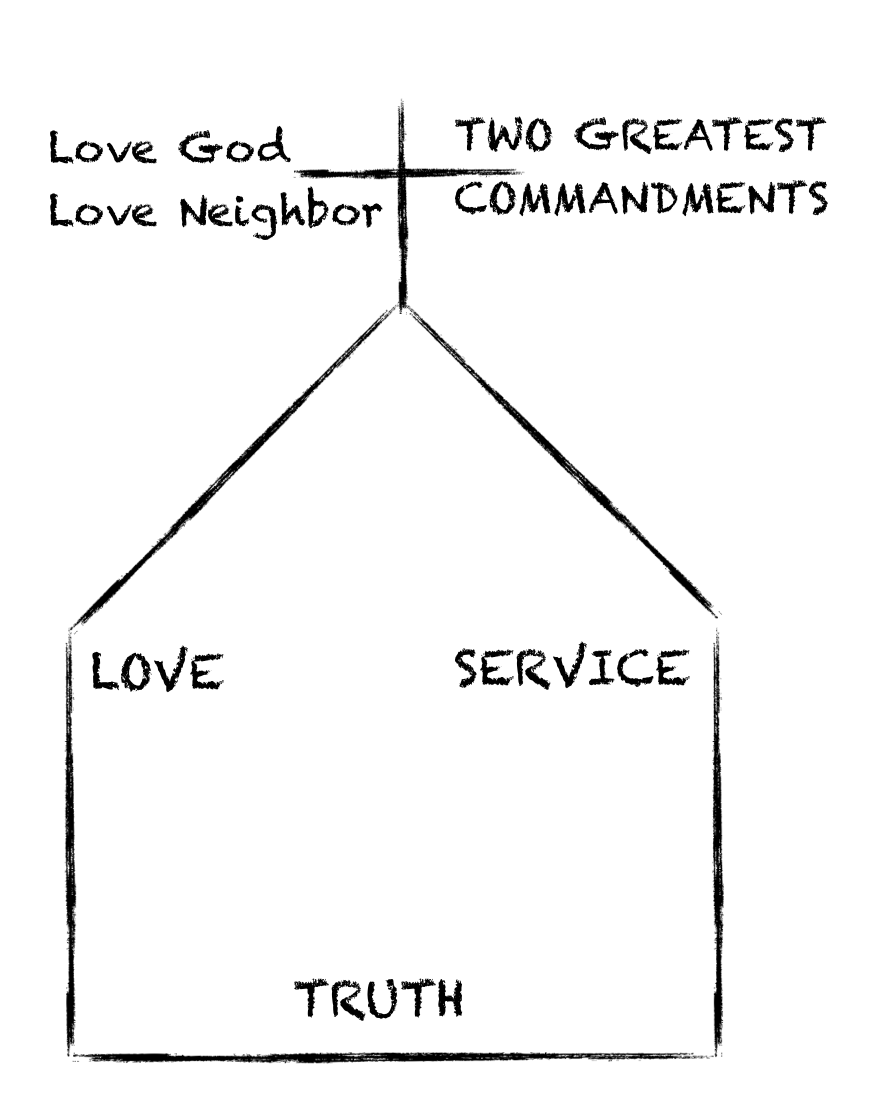
 RSS Feed
RSS Feed



